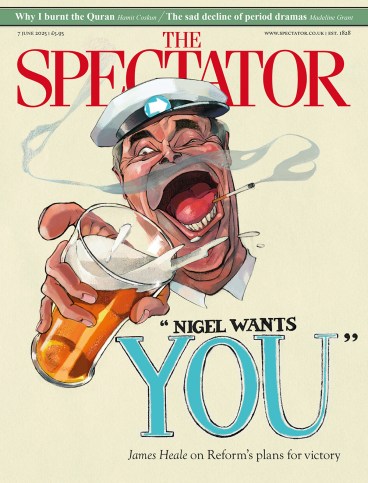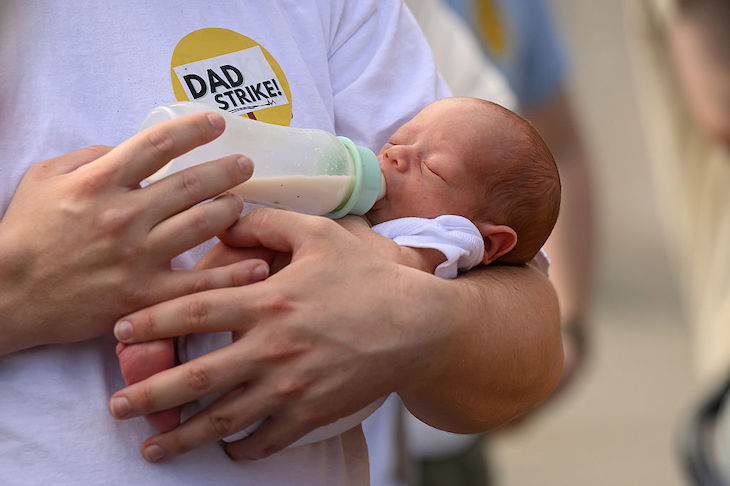
Max Jeffery has narrated this article for you to listen to.
The Cambridge bike bandit emerged. I watched the rough, smiling face of the old man who came slowly from his bungalow and urged me to join him around the back; he didn’t look like a thief. We entered his grassless yard filled with bikes, tyres and tools. ‘This Raleigh, £80,’ he said, withdrawing a creaky frame from the pile. ‘I just changed the tyre. You see? Not heavy. Made in England. Nottingham. You can try a little bit. Try it for ten minutes. I don’t mind.’
A source had told me about the bandit, a man who openly shifted stolen bikes from a suburban Cambridge home, so bad and unpoliced has bike theft become in the city. I had got the outlaw’s phone number and arranged to meet him under the guise of making a purchase.
Around 1,200 bikes were reported stolen in Cambridge last year, six times the number in places of comparable size such as Ipswich or Blackpool. I had arrived into the city at Cambridge North station, which has a bike rack surrounded by nine CCTV cameras, and which last year the British Transport Police said had the highest rate of bike theft of any train station in the country. ‘We take cycle security very seriously,’ said a spokesman for Greater Anglia, the firm that operates Cambridge North.
I returned the Raleigh to the bandit after a short test ride in his cul de sac. Try another, he suggested. ‘More expensive? Cheaper?’ The bandit was accommodating, relaxed – he held an enviable position in Cambridge’s criminal economy. I was told he had a policy of returning a stolen bike if its owner visited him and asked nicely, so no one wanted him reported to the police. If the authorities got to him, the same bikes would still get stolen, but they’d just get sold by a different man – and perhaps not such a good-natured one. Why would anyone snitch?
I asked the bandit where he got all the bikes and his explanation was plausible. ‘The city council and the university sell a lot of bikes,’ he said, ‘because many overseas students, when they complete their course, leave college, they don’t take their bike home. Some recyclers charge a fee. I don’t ask for money. They just donate it to me.’
‘I don’t buy privately,’ he added, ‘because you need to see the original receipt to make sure it’s not stolen. If you buy from the city council or buy from the university, you don’t need to do this.’ The bandit said he also sold locks and helmets and that all his bikes came with a free after-purchase service. I wondered whether he really was a thief, or if this had all been a sad misunderstanding. Bike crime has made Cambridge a paranoid city. The Home Office says that 4 per cent of bike thefts here result in a charge, leaving something like 1,000 people each year who see no justice.
Barnwell is teeming with ‘toddlers’ – errant teenagers, usually under 16, who vandalise and steal
Many of the city’s bike thieves live in the suburb of Barnwell, a 20-minute walk from Cambridge North Station. Locals say Barnwell is teeming with ‘toddlers’ – errant teenagers, usually under 16, who vandalise and steal. At the Barnwell Spar, a cashier named Lucy who had worked there for 12 years told me she used to chase them away, but stopped after one threatened to knock her over the head with a bottle of Jameson whiskey. The day before we met, one of these ‘toddlers’ had stolen two crates of beer from her shop. He had tried to get away on his (probably stolen) bicycle but couldn’t hold on to the handlebars and the loot at the same time. He had ditched the bike in favour of the beer, and so the bike was being held in the Spar’s stockroom.
In the office of a charity next door to the Spar I spoke to Angie. ‘No one steals round here,’ she said. Then she cackled.
‘I say put them [the bike thieves] down,’ suggested a friendly man called Tom in the city centre who worked at a bike repair shop. ‘Just slap the fuck outta them. Chop their fucking hands off and watch things change.’ Tom told me thieves in Cambridge attacked people with machetes for their bicycles. Does he ever intervene, I asked, because he seemed like a guy who might. ‘I ain’t getting involved in anyone else’s shit,’ he said. ‘I’m not gonna get stabbed for it.’ He made inverted commas with his fingers. ‘It’s a nice university town.’
The trouble now with Cambridge is that it’s not just full of criminals, but victims too. And victims are unhappy, vengeful people, a bit like Tom. Last year, a criminologist from the University of Portsmouth named David Shepherd surveyed what he saw as a growing trend of dishonesty in the UK and concluded that there has been a rise in ‘everyday economic criminality’. The failure of policing is making ordinary people more inclined to stoop to criminal levels. People are stealing bikes and getting away with it. It makes you think: am I the only idiot running life by the book?
In the end, the ‘bandit’ let me try another couple of bikes, offering between test rides his insights on subjects such as how Taiwan has increased its share of global bicycle production. He was quite charming, and an unlikely criminal; just one winner from Cambridge’s lawlessness. Eventually his wife came outside and told him that another customer had arrived. He ushered me out of his yard, back on to the city’s seething streets.








Comments